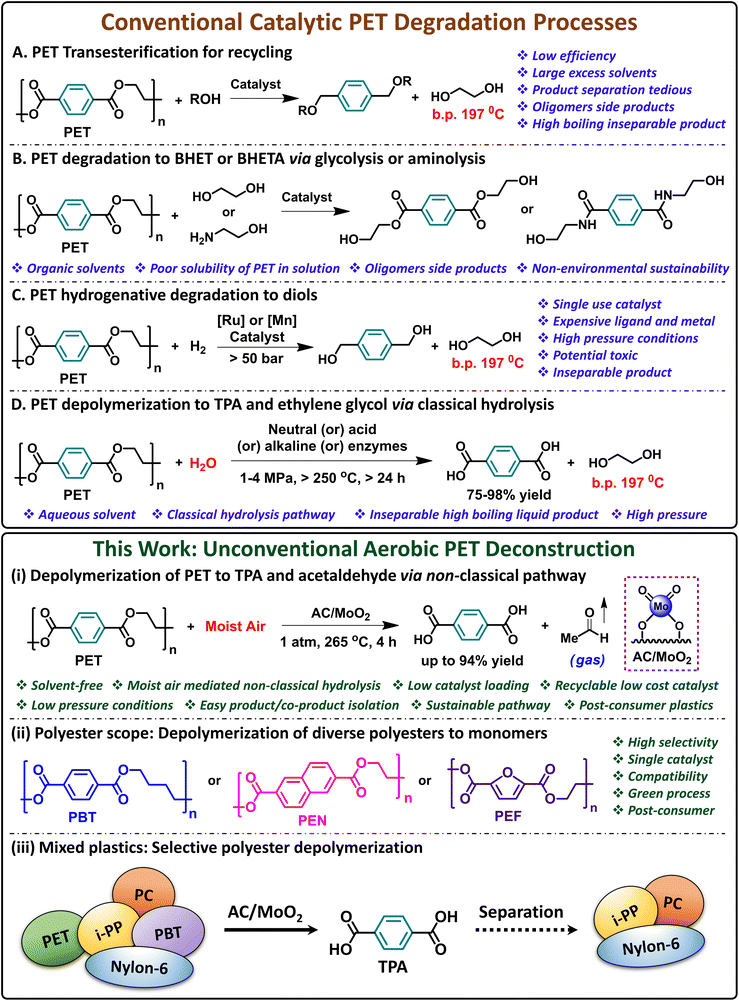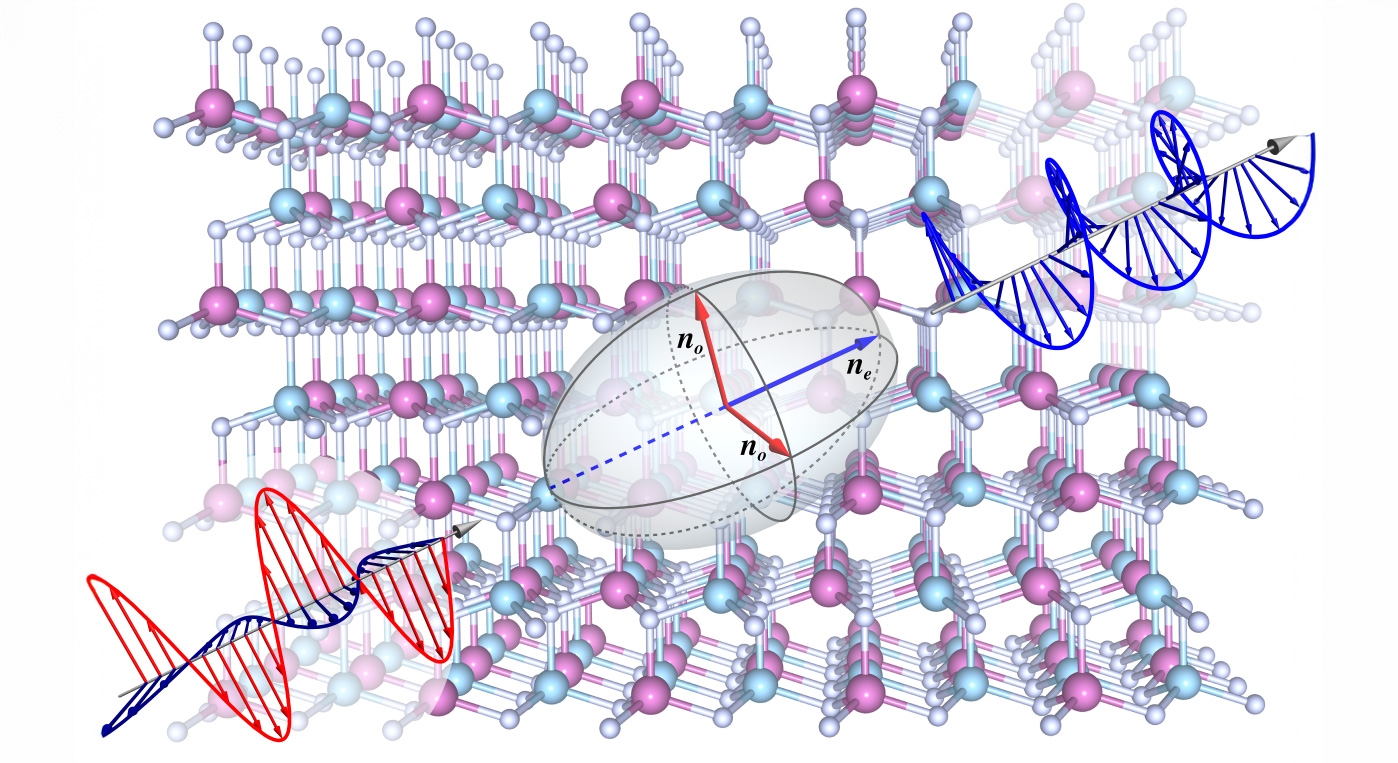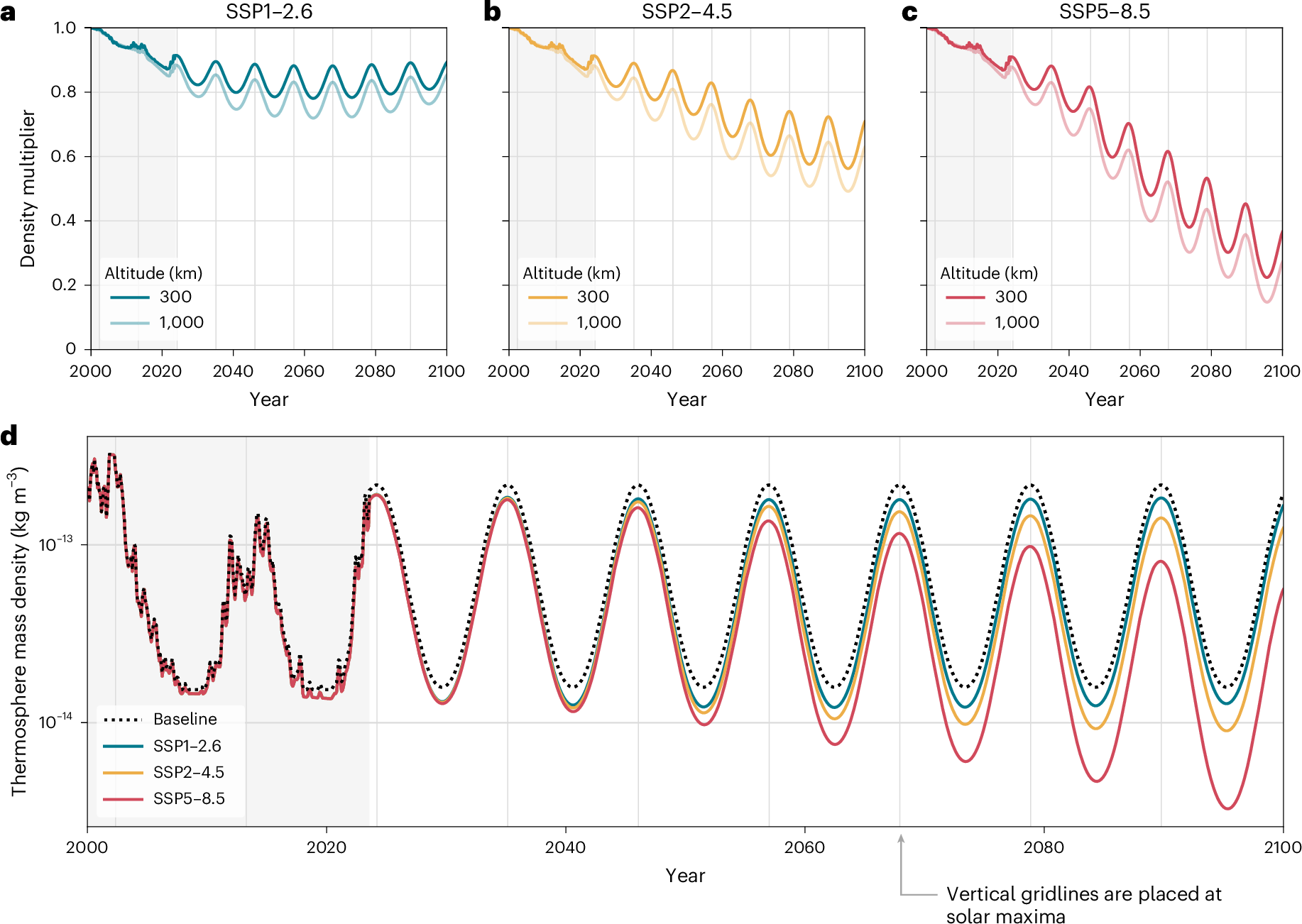2025-03-11 ノースウェスタン大学
<関連情報>
- https://news.northwestern.edu/stories/2025/03/plastic-recycling-gets-a-breath-of-fresh-air/
- https://pubs.rsc.org/en/content/articlehtml/2025/gc/d4gc05916f
シングルサイトモリブデンジオキソ触媒を用いた無溶媒好気性ポリエチレンテレフタレートプラスチックの熱力学的レバレッジド分解 Thermodynamically leveraged solventless aerobic deconstruction of polyethylene-terephthalate plastics over a single-site molybdenum-dioxo catalyst
Naveen Malik, Jiaqi Li, Amol Agarwal, Yosi Kratish and Tobin J. Marks
Green Chemistry Published:3rd February 2025
DOI:https://doi.org/10.1039/D4GC05916F

Abstract
Here, we describe the solventless catalytic deconstruction of polyethylene-terephthalate (PET) under an aerobic atmosphere, mediated by an earth-abundant, low-cost activated carbon (AC)-supported single-site molybdenum-dioxo catalyst (AC/MoO2). Catalytic amounts of AC/MoO2 selectively convert waste PET into its monomer, terephthalic acid (TPA), within 4 h at 265 °C with yields as high as 94% under 1 atm air. Pure crystalline TPA product sublimes from the reaction hot zone, crystallizing on the reactor cold zone, thus avoiding the need for separation and purification steps. This process does not employ any hazardous/toxic reducing agents or solvents, and the catalyst can be recycled multiple times without loss of activity, rendering this process highly atom-efficient. According to computational and experimental mechanistic studies, the AC/MoO2 catalyst mediates a thermoneutral metal-catalyzed β-scission step, followed by an exothermic step that converts the vinyl benzoate intermediate to TPA and acetaldehyde using trace amounts of moisture in the air. The formation of gaseous acetaldehyde makes the isolation of TPA from the reaction mixture facile and industrially favorable, especially since solvents are unnecessary. The present methodology is also extended to the deconstruction of other frequently used polyester plastics, polybutylene terephthalate (PBT), polyethylene naphthalate (PEN), and polyethylene furanoate (PEF), and operates equally well with post-consumer waste products. Notably, this process is also compatible with plastic mixtures of polyesters with polyolefins, polyamides, and polycarbonates, leading to the selective conversion of each polyester to the corresponding monomer, leaving the residual polymer unchanged and polyester-free.



